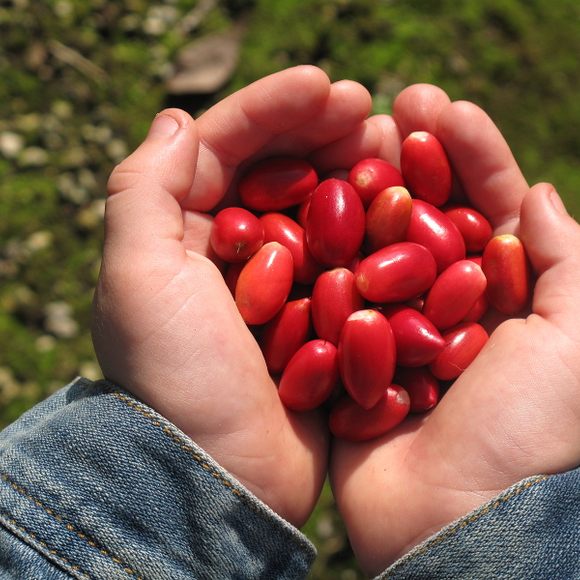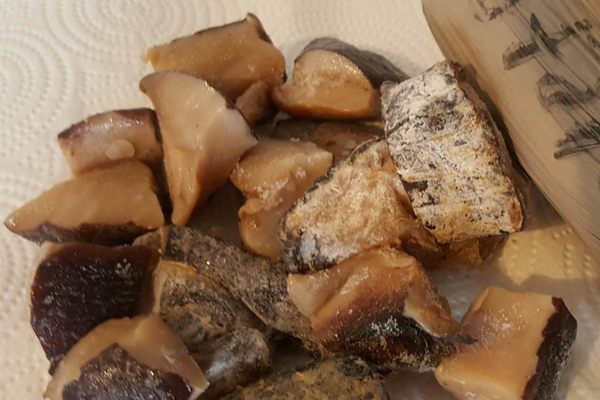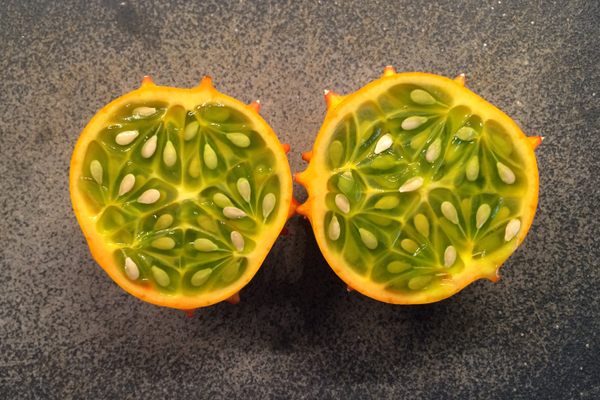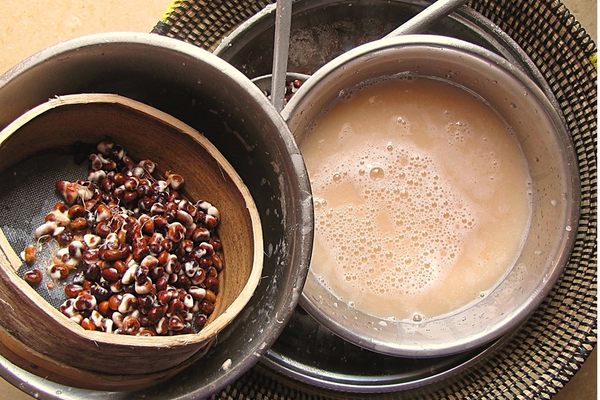Fruits & Vegetables
Miracle Berries
When life gives you lemons, this tropical fruit makes 'em taste like lemonade.
Miracle berries taste like bland cranberries, but they turn vinegar into honey. Eating just one can alter the taste of sour foods for up to an hour, turning tanginess into sweetness as soon as it hits your tongue.
This unusual berry originated in tropical West Africa. In the 1700s, explorer Chevalier des Marchais spread awareness of the fruit after observing people eating miracle berries before downing gruel and sour palm wine. In 1968, scientists isolated the unique protein that turns sour flavors impossibly sweet. They named it miraculin, because its effects are miraculous.
When miraculin binds to taste buds, it lingers on sweet receptors, activating them only in sour environments. The experience lasts for roughly 30 minutes, but can carry on for much longer. Heat and refrigeration denature it, though, which renders the berry ineffective. This makes fresh miracle berries highly perishable and relatively expensive outside their growing area.
In recent years, miracle berries have become the stars of “flavor-tripping” parties. Participants kick off the night by scraping the flesh from the fruit with their teeth, letting the juice coat their mouths and then spitting out the seed. Soon a smorgasbord of food that shouldn’t taste sweet does. According to one account, tabasco sauce becomes hot doughnut glaze and goat cheese morphs into a cheesecake. A more direct approach is to happily munch on lemons and limes.
There are no known dangers associated with miracle berries. Its medicinal uses, though little-studied, are promising: Miraculin allows diabetics to enjoy sweetness without ingesting sugar and helps cancer patients affected by chemotherapy experience a fuller spectrum of taste. Regardless, the FDA labeled miracle berries a “food additive” in the 1970s. This means the berries can be legally grown in the United States, but not commercially used in food. Proponents of the berry suspect foul play from the sugar industry.
In West Africa, meanwhile, families and some farmers still grow the fruit, but its use has declined: Cheap, plentiful sugar robbed miracle berries of their magic. It’s taken the discovery of sugar’s dangers to make them miraculous once again.
Written By
 rachelrummel
rachelrummel
Sources
- www.webmd.com/vitamins-supplements/ingredientmono-1171-miracle%20fruit.aspx?activeingredientid=1171&activeingredientname=miracle%20fruit
- www.nytimes.com/2008/05/28/dining/28flavor.html?mcubz=3
- news.bbc.co.uk/2/hi/uk_news/magazine/7367548.stm
- www.theatlantic.com/health/archive/2014/05/can-miraculin-solve-the-global-obesity-epidemic/371657/
- www.miraclefruitusa.com/products/
- books.google.com/books?isbn=0385673515
- blogs.scientificamerican.com/thoughtomics/shapeshifting-protein-makes-sour-taste-sweet/
- www.ghanaweb.com/GhanaHomePage/health/Asaba-The-Berry-That-Makes-Everything-Sweet-281915
- link.springer.com/article/10.1007/BF02908127
















